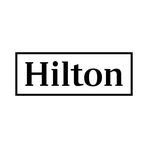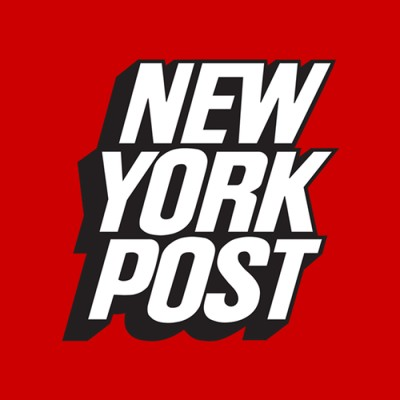The Shadow Over Manhattan: The Assassination of Brian Thompson
December 6, 2024, 12:06 am

Location: United States, Minnesota, Minnetonka
Employees: 10001+
Founded date: 1977
Total raised: $375K
In the heart of Manhattan, a chilling act of violence unfolded on December 4, 2024. Brian Thompson, the CEO of UnitedHealthcare, was shot dead in a brazen attack that sent shockwaves through the city and the healthcare industry. This was not just a murder; it was a calculated execution, a dark reminder of the fragility of life and the shadows that lurk even in the most bustling of urban landscapes.
Thompson was a prominent figure in the healthcare sector, leading the largest health insurer in the United States. His role was pivotal, steering a company that provided benefits to millions. Yet, on that fateful morning, he became a target. As he approached the Hilton hotel for UnitedHealth Group's annual Investor Day, a masked assailant lay in wait. The shooter, armed and ready, struck from behind, demonstrating a chilling precision. This was no random act; it was a premeditated ambush.
The scene was surreal. Just blocks away, the city prepared for its annual Christmas tree lighting at Rockefeller Center. Festivities filled the air, but a dark cloud loomed over Midtown. The police described the attack as targeted, with every indication pointing to a deliberate plan. The shooter had waited, watching, before executing his deadly mission. He fired multiple rounds, hitting Thompson in the back and calf, before disappearing into the chaos of Central Park on an electric bike.
The investigation quickly unfolded, revealing the chilling details of the crime. Shell casings found at the scene bore the words "deny," "defend," and "depose," echoing the title of a book critical of the insurance industry. This macabre detail raised eyebrows and questions. Was this a message? A motive hidden in plain sight? The police were tight-lipped, but the implications were clear. This was a statement, a dark commentary on the world of healthcare.
Thompson's death sent ripples through the corporate world. UnitedHealth Group, a titan in the industry, was now grappling with the fallout. The company had recently faced challenges, including a massive data breach that disrupted services for countless patients. Now, it faced the loss of its leader, a man who had dedicated nearly two decades to the company. His wife, Paulette, spoke of threats he had received, but local police departments found no record of such warnings. The silence was deafening.
As the investigation continued, the police released surveillance images of the suspect. The masked figure, clad in a hooded sweatshirt and balaclava, became the face of fear. The public was urged to help identify him, but the anonymity of the assailant only deepened the mystery. Who was this man? What drove him to commit such a heinous act? The answers remained elusive, hidden behind a veil of darkness.
The implications of Thompson's assassination extend beyond the immediate tragedy. It raises questions about safety in the corporate world. Executives often navigate a landscape fraught with pressure and scrutiny. In an industry as contentious as healthcare, where profits and ethics often clash, the stakes can be deadly. Thompson's death serves as a stark reminder of the potential consequences of corporate leadership in a high-stakes environment.
The aftermath of the shooting saw UnitedHealth Group cancel its Investor Day event. The company, once focused on showcasing its achievements, now faced a grim reality. The words of the staff echoed through the halls: "We're dealing with a very serious medical situation with one of our team members." The gravity of the situation was palpable. The corporate world paused, reflecting on the fragility of life and the unpredictability of violence.
As the investigation unfolds, the NYPD remains committed to finding justice for Thompson. Police Commissioner Jessica Tisch vowed that they would not rest until the shooter was apprehended. The urgency is palpable. The city demands answers, and the healthcare industry seeks closure. The shadow of this tragedy looms large, a reminder that even in a city that never sleeps, darkness can strike at any moment.
In the days following the shooting, the community mourned. Flowers and candles appeared outside the Hilton, a makeshift memorial for a man who had touched many lives. Colleagues and friends remembered Thompson as a dedicated leader, a man who fought for better healthcare for all. His legacy, however, is now intertwined with the violence that claimed his life.
The world watches as the investigation continues. Will the truth emerge from the shadows? Will the motives behind this brutal act be uncovered? The answers lie ahead, but for now, the city grapples with the loss of a leader and the haunting question of why. In a world where healthcare is a battleground, Thompson's assassination serves as a stark reminder of the risks faced by those at the helm. The fight for justice is just beginning, and the echoes of that fateful morning will resonate for years to come.
Thompson was a prominent figure in the healthcare sector, leading the largest health insurer in the United States. His role was pivotal, steering a company that provided benefits to millions. Yet, on that fateful morning, he became a target. As he approached the Hilton hotel for UnitedHealth Group's annual Investor Day, a masked assailant lay in wait. The shooter, armed and ready, struck from behind, demonstrating a chilling precision. This was no random act; it was a premeditated ambush.
The scene was surreal. Just blocks away, the city prepared for its annual Christmas tree lighting at Rockefeller Center. Festivities filled the air, but a dark cloud loomed over Midtown. The police described the attack as targeted, with every indication pointing to a deliberate plan. The shooter had waited, watching, before executing his deadly mission. He fired multiple rounds, hitting Thompson in the back and calf, before disappearing into the chaos of Central Park on an electric bike.
The investigation quickly unfolded, revealing the chilling details of the crime. Shell casings found at the scene bore the words "deny," "defend," and "depose," echoing the title of a book critical of the insurance industry. This macabre detail raised eyebrows and questions. Was this a message? A motive hidden in plain sight? The police were tight-lipped, but the implications were clear. This was a statement, a dark commentary on the world of healthcare.
Thompson's death sent ripples through the corporate world. UnitedHealth Group, a titan in the industry, was now grappling with the fallout. The company had recently faced challenges, including a massive data breach that disrupted services for countless patients. Now, it faced the loss of its leader, a man who had dedicated nearly two decades to the company. His wife, Paulette, spoke of threats he had received, but local police departments found no record of such warnings. The silence was deafening.
As the investigation continued, the police released surveillance images of the suspect. The masked figure, clad in a hooded sweatshirt and balaclava, became the face of fear. The public was urged to help identify him, but the anonymity of the assailant only deepened the mystery. Who was this man? What drove him to commit such a heinous act? The answers remained elusive, hidden behind a veil of darkness.
The implications of Thompson's assassination extend beyond the immediate tragedy. It raises questions about safety in the corporate world. Executives often navigate a landscape fraught with pressure and scrutiny. In an industry as contentious as healthcare, where profits and ethics often clash, the stakes can be deadly. Thompson's death serves as a stark reminder of the potential consequences of corporate leadership in a high-stakes environment.
The aftermath of the shooting saw UnitedHealth Group cancel its Investor Day event. The company, once focused on showcasing its achievements, now faced a grim reality. The words of the staff echoed through the halls: "We're dealing with a very serious medical situation with one of our team members." The gravity of the situation was palpable. The corporate world paused, reflecting on the fragility of life and the unpredictability of violence.
As the investigation unfolds, the NYPD remains committed to finding justice for Thompson. Police Commissioner Jessica Tisch vowed that they would not rest until the shooter was apprehended. The urgency is palpable. The city demands answers, and the healthcare industry seeks closure. The shadow of this tragedy looms large, a reminder that even in a city that never sleeps, darkness can strike at any moment.
In the days following the shooting, the community mourned. Flowers and candles appeared outside the Hilton, a makeshift memorial for a man who had touched many lives. Colleagues and friends remembered Thompson as a dedicated leader, a man who fought for better healthcare for all. His legacy, however, is now intertwined with the violence that claimed his life.
The world watches as the investigation continues. Will the truth emerge from the shadows? Will the motives behind this brutal act be uncovered? The answers lie ahead, but for now, the city grapples with the loss of a leader and the haunting question of why. In a world where healthcare is a battleground, Thompson's assassination serves as a stark reminder of the risks faced by those at the helm. The fight for justice is just beginning, and the echoes of that fateful morning will resonate for years to come.


